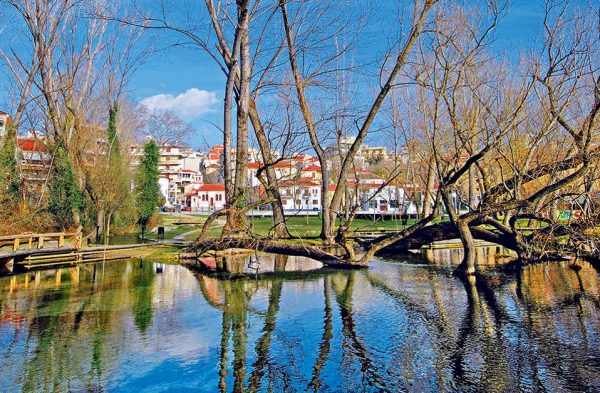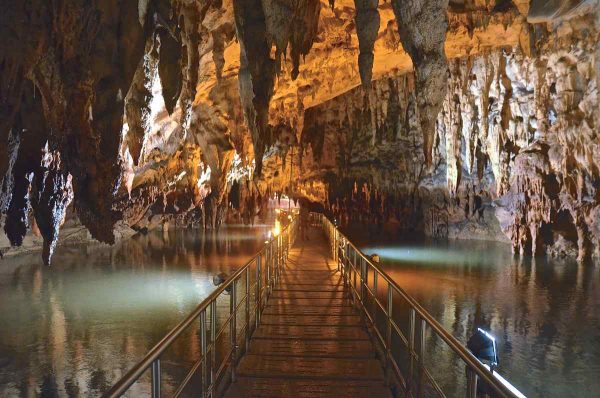Built at the foot of the imposing Falakro Mt, in a verdant area with abundant water sources, Drama is beautiful and hospitable, featuring picturesque neighbourhoods, spacious squares, green areas and well preserved neoclassical mansions. A very few archaeological finds show that in the area of the modern city there used to be a settlement named Dyrama or Hydrama. This was the place of worship for many Gods of the Greco-Roman Pantheon (Apollo, Artemis, Isis, Hercules, and Dionysus). During the Byzantine years, there was a city possibly named “Draviskos” in the same area. In the middle Byzantine Period (9th-13th centuries) Drama was a fortified city with a castle and it used to be a commercial and military junction. In the late 19th century, tobacco production and trade, the operation of the railway (1895) and improvement of the road network towards the Port of Kavala, led to an increase in the population of the city and to the enhancement of the commercial activity. In the early 20th century Drama was occupied by the Bulgarians and participated in the Macedonian Struggle, but was liberated by the Greek Army on July 1st 1913. It is located at a distance of 650km NE of Athens and 150km NE of Thessaloniki.

Drabescus was part of the Roman and Byzantine Empires along with the rest of Greece. The region was conquered by Ottoman Empire in 1371. In the 19th century, the town became centre of the Sanjak of Drama. In 1912 during the First Balkan War, Drama was taken from the Ottomans by Bulgarian troops. Subsequently, in 1913 as a result of the Treaty of Bucharest, following the Second Balkan War, it was incorporated into Greece along with the rest of eastern Macedonia.

In the recent past the economy of the Drama area relied heavily on the local paper and textile-clothing industries. However, these industries have either closed down or moved across the border to Bulgaria, because of the low demands of the Bulgarian workforce, with a negative impact on the local economy and employment. The situation worsened after 2007, when Bulgaria was admitted to the EU, and local Greek businessmen moved to expand their operations there. Other sources of revenue include agriculture, consisting mainly of tobacco plantations, small-scale mining (particularly of marble) and forestry. Recently, there have been efforts to exploit the rich local natural environment and to develop ecotourism. In the recent past the economy of the Drama area relied heavily on the local paper and textile-clothing industries. However, these industries have either closed down or moved across the border to Bulgaria, because of the low demands of the Bulgarian workforce, with a negative impact on the local economy and employment.

Transfer Thessaloniki is the best way to discover this beautiful city! We are here to transfer you from Thessaloniki Airport to Drama. Your transfer, is our pleasure!
